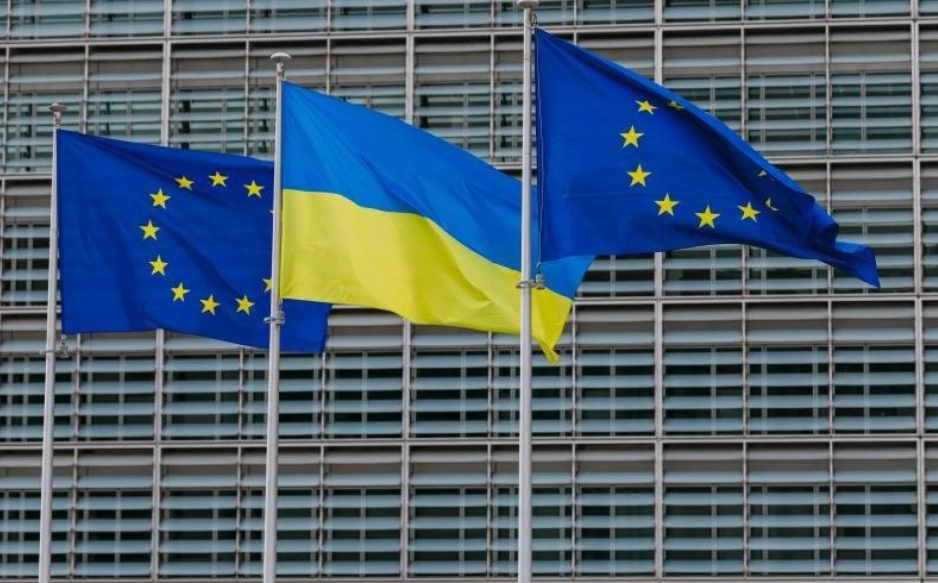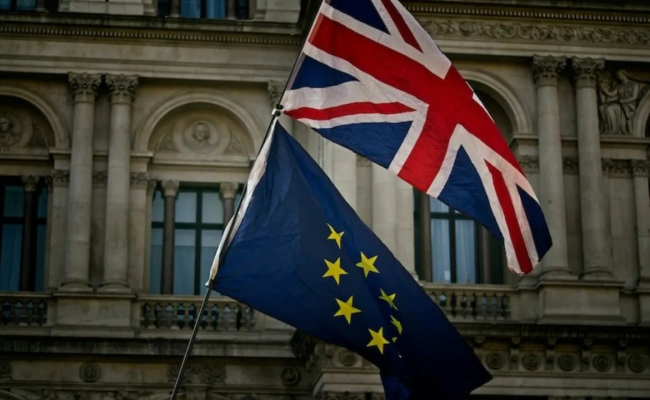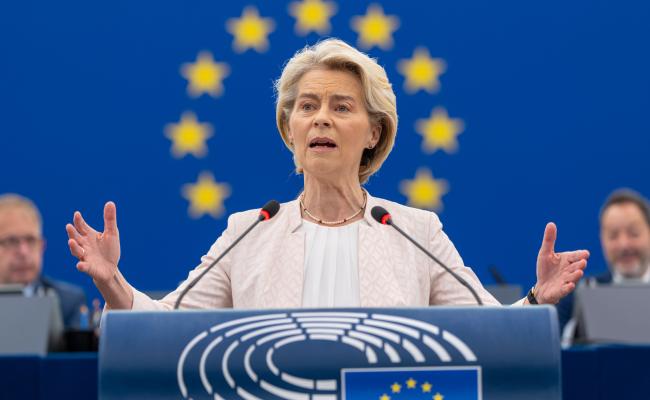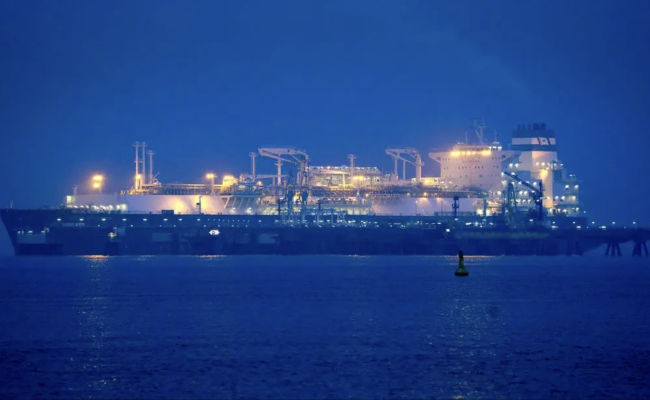EU Includes Russian LNG in 19th Sanctions Package; U.S. Focuses on Oil Sector Targets Rosneft and Lukoil

EU and Ukraine flag in Brussels. (Source: European Commission)
In a one-two punch new U.S. and EU sanctions target the Russian energy sector, including oil majors Rosneft and Lukoil, and the country’s LNG sector. After years of debate the EU has agreed on banning imports of Russian LNG by January 1, 2027; a significant escalation of the bloc’s sanctions regime.
The European Union on Thursday formally adopted its 19th sanctions package against Russia, for the first time targeting liquefied natural gas (LNG) exports as part of efforts to curb Moscow’s energy revenues.
The news comes nearly four years into the Ukraine War and after the bloc spent 73 billion Euro for the purchase of Russian LNG. The LNG ban marks a major escalation in Europe’s sanctions strategy.
Meanwhile, the United States opted instead to impose fresh sanctions on major Russian oil companies — such as Rosneft and Lukoil — rather than take action against Russian LNG.
In contrast to the Biden Administration, the Trump White House has failed to keep up sanctions pressure against Russia’s Arctic LNG 2 project and emerging Chinese buyers.
In recent weeks the Arctic LNG project managed to deliver 10 shipments of supercooled gas to a South China terminal. The terminal was not included in U.S. or EU sanctions, though the UK listed it in measures last week.
Europe has made a historic decision
The U.S. sanctions against Rosneft and Lukoil will affect the country’s Arctic oil projects and raise questions over the future of India’s ongoing buying spree of Russian oil.
An LNG ban four years in the making
In its official announcement, the European Commission said it will implement a phased ban on Russian LNG imports distinguishing between existing short-term and long-term contracts. This move has been debated among EU officials and member states for much of the past four years.
“Europe has made a historic decision. We will stop all imports of Russian LNG by the end of 2026 and crack down on the oil shadow fleet. This is an unprecedented move that the EU makes in unity and full solidarity with Ukraine. It will deal a major blow to Putin's war machine and sustain peace efforts for Kyiv. Europe must regain its energy independence. Ukraine must prevail,” said Dan Jørgensen, EU Commissioner for Energy and Housing.
LNG ban and more
The sanctions package goes beyond LNG. It also expands restrictions on the so-called “shadow fleet” of ageing Russian tankers, adds Russian banks and entities from Kazakhstan, Belarus, India and China to the list, and tightens movement rules on Russian diplomats in the bloc.
The EU said the full package “targets Russian banks, crypto exchanges, entities in India and China, among others.” It adds 117 shadow fleet vessels expanding the list to 557 ships.
Also read (the text continues)
EU officials say the broader goal is two-fold: to reduce the bloc’s reliance on Russian fossil fuels and to deprive Moscow of funding for the war in Ukraine.
“With this 19th package we are deploying a very wide range of additional measures to weaken Russia’s faltering economy even further. A ban on LNG will hit where it hurts most, while additional measures on financial services [and] anti-circumvention measures will also have a strong impact,” confirmed Maria Luís Albuquerque, EU Commissioner for Financial Services.
Will Russia find new buyers
In 2024 the EU imported at least 16.65 million tons of Russian LNG, primarily from the Arctic Yamal project and around half of Russia’s total production.
Under the now approved sanctions imports under short-term contracts will end in six months time, with deliveries from long-term agreements ending by January 1, 2027.
The measures are a major blow to Russia’s largest LNG producer Novatek.
The company will be forced to reorganize its logistics chains over the next 15 months rerouting deliveries from the relatively proximate European continent to faraway buyers in Asia.
Much of this LNG will flow through the waters along Norway's coastal waters. In addition to greater shipping costs Novatek may also have to offer substantial discounts to attract new buyers.
For its sanctioned cargoes from Arctic LNG 2 the firm reportedly is giving discounts up to 40 percent.




